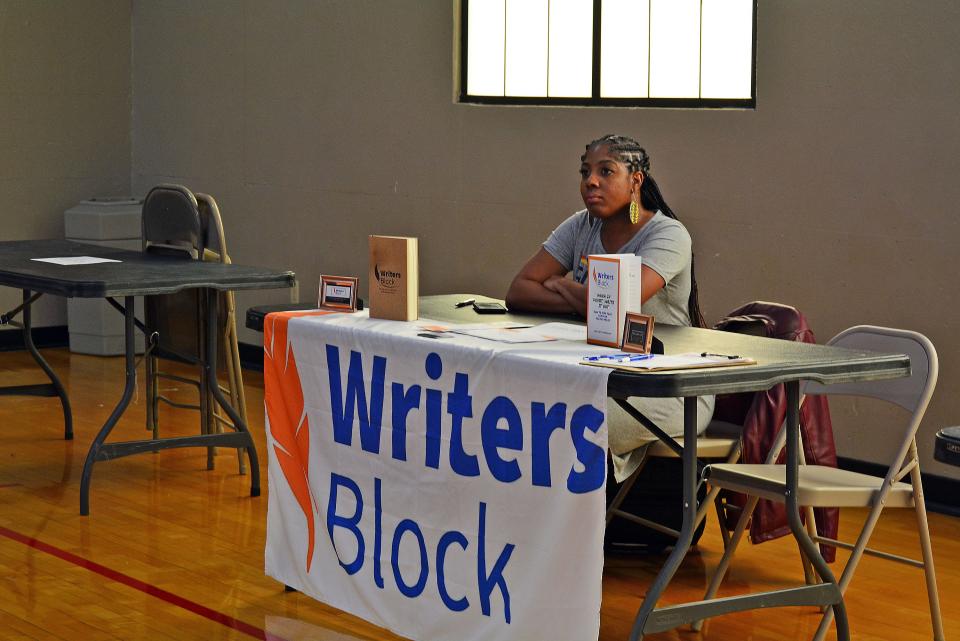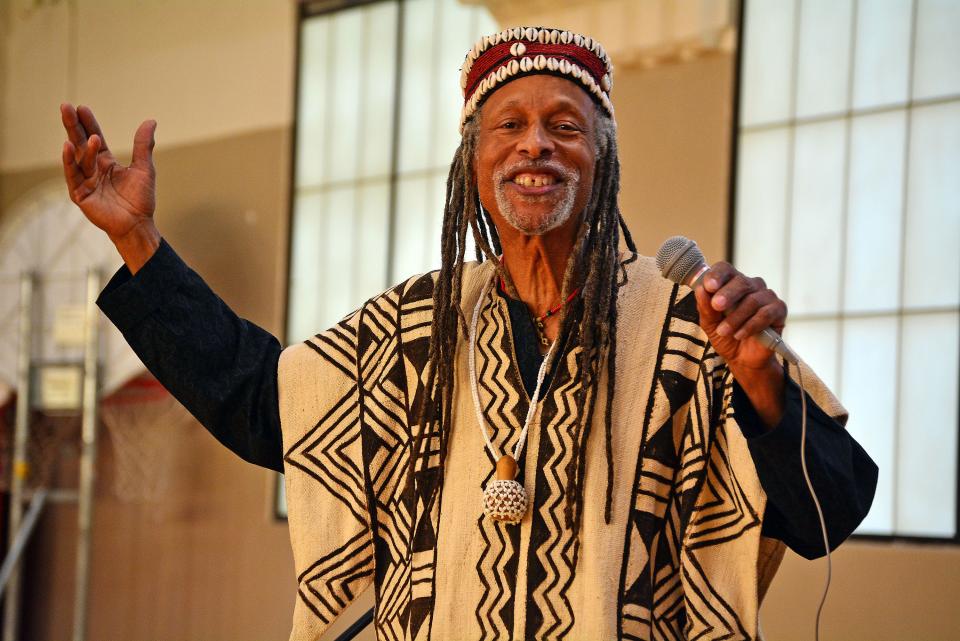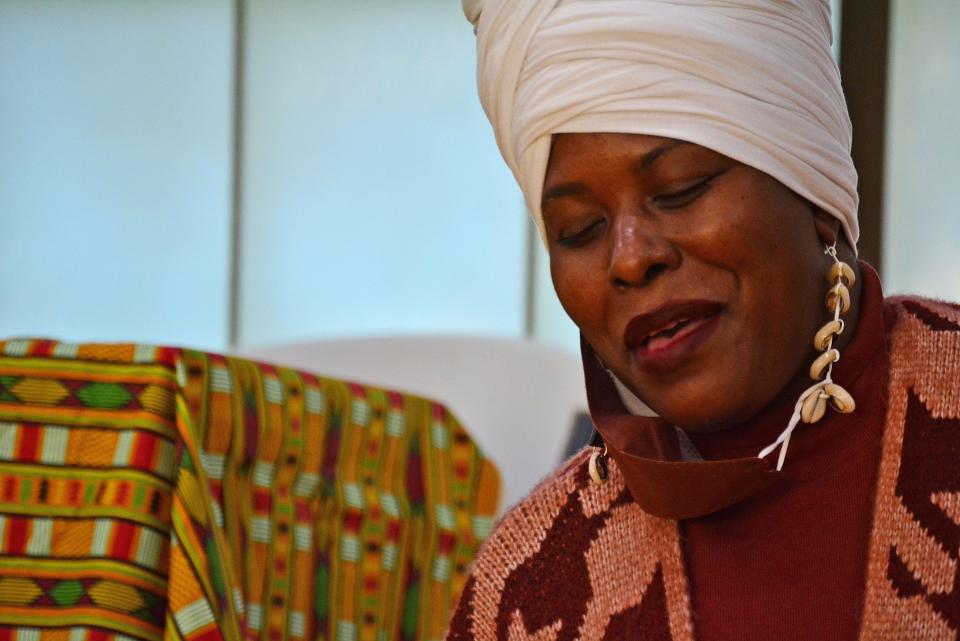Kwanzaa traditions highlighted, celebrated at downtown Columbia event

Dec. 26 is the first day of Kwanzaa, a holiday celebrating African American culture.
The City of Columbia recognized the holiday early with an event Saturday at the Armory Sports and Recreation Center, celebrating Black lives, traditions and entrepreneurship.
St. Louis professional storyteller Kunama Mtendaji and fellow performer Marshanette Densmore told stories, sang and explained the symbolism and principles of the holiday. Densmore has worked with Mtendaji since the 1980s. They have connections to the Performing Arts Training Center and Sunshine Cultural Arts Center in East St. Louis, Illinois.
Densmore wears a single feather in her headwrap, a reminder to keep her heart light even when facing difficult experiences, she said.

One Kwanzaa principle was on display with the Black-owned business expo that took place during the celebration, Mtendaji said. The fourth principle of Kwanzaa is Ujamaa, or cooperative economics. In other words, Black entrepreneurs creating their own businesses and the Black community supporting them.
The essence of the holiday
The focus and essence of Kwanzaa is family, Mtendaji said.
While there may be Kwanzaa events in many communities, Kwanzaa is a holiday for the home, he said.
"You cannot say I went to Kwanzaa any more than you can say I went to Christmas," Mtendaji said. "You can go to a Kwanzaa activity, but you don't go to Kwanzaa. ... The essence of Kwanzaa is in the home."

The display of a straw mat, ears of corn, fruit, cup, kinara (a candleholder with candles of black, red and green) and gifts represents the symbols of Kwanzaa, which was first celebrated as a holiday in 1966.
Mtendaji put the spotlight on the ears of corn. One ear of corn is placed on the altar for every child in a family. For those without children, at least one ear is placed on the table.
"In the African tradition, everyone is a sociological parent. We as adults are responsible for children. Children look to us for guidance wherever we are," he said.
Mtendaji attended his first Kwanzaa celebration when he was 21 years old and an undergraduate student at Southern Illinois University-Edwardsville.
The event changed his whole outlook and path in life, he said.
Reclaiming stories
As a storyteller, Mtendaji also works to reclaim stories that have historically made it seem like being Black is a bad thing, he said.

He related his shock about a Native American story that told the narrative of the crow and how it went from white to black, and how that was seen as a negative. Or the story of The Crow and The Fox from Aesop's Fables, where the black crow is considered unintelligent for losing its meal to the fox.
Through his research, he learned how intelligent crows are because they are one of the few animals that have learned how to use simple tools, such as small sticks, to accomplish the goal of getting food. So he redeveloped that fable.
What is Kwanzaa?
Kwanzaa is an annual celebration of Black culture from Dec. 26 through Jan. 1.
Similar to the Jewish tradition of the menorah, candles are lit on a kinara each day of the holiday's celebration.

The seven candles are black, green and red, the colors of the pan-African flag.
Each candle relates to one of the seven principles of the holiday:
Unity;
Self-determination;
Collective work and responsibility;
Cooperative economics;
Purpose;
Creativity; and
Faith
Kwanzaa was first celebrated in 1966 and was developed by Maulana Karenga, who based it on harvest traditions of west and southeast Africa.
The name of the holiday comes from a Swahili phrase meaning first fruits.
This article originally appeared on Columbia Daily Tribune: Kwanzaa traditions highlighted, celebrated at downtown event

